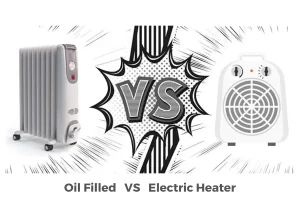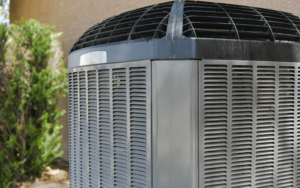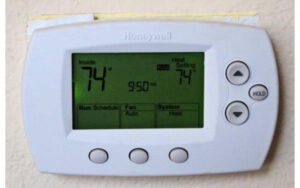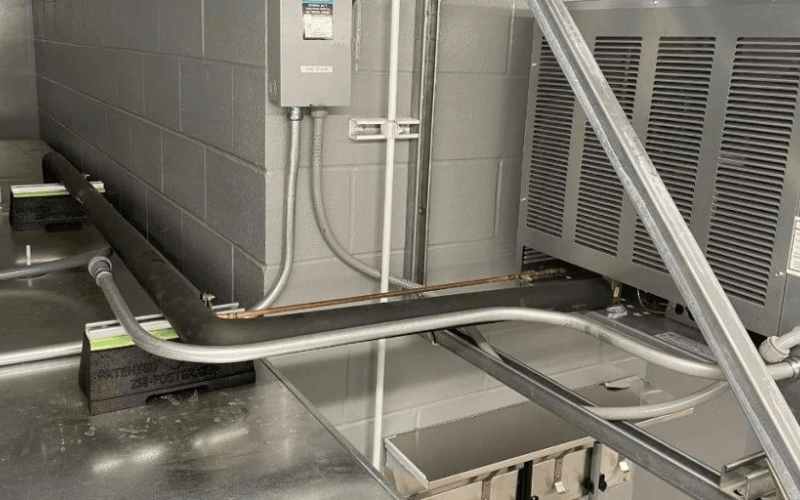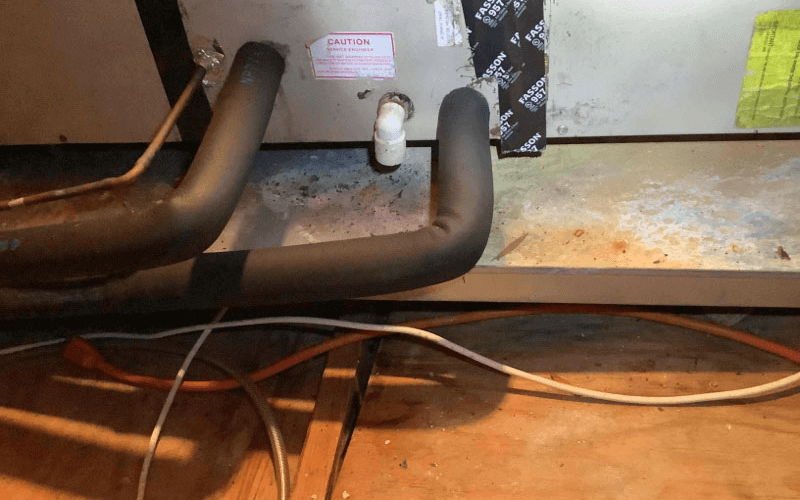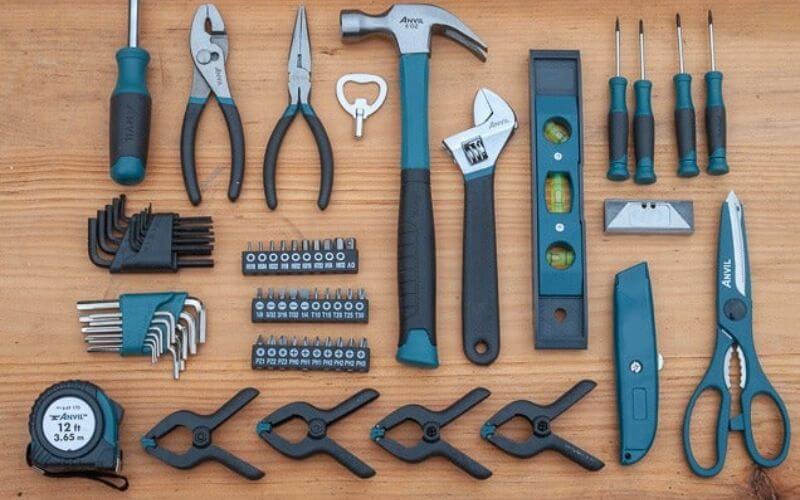Water heaters are vital household appliances since they simplify many tasks that require hot water. If your water heater begins to leak, you should be concerned. People frequently wonder If A Leaking Water Heater Can Be Repaired. Yes, it is repairable, but it is dependent on how old the heater is, where the leak is coming from, and the extent of the damage.
Table of Contents
ToggleLet’s learn more about the leaky water heater and how to determine whether to repair or replace it.
Is It Better To Repair Or Replace My Leaking Water Heater?
A variety of factors influence whether you should repair or replace your water heater.
Age.
Most water heaters fail between ages 8 and 12, so if yours approaches that age, it may be time to replace it. If you have a tankless water heater older than 20 years, it may still be functional after servicing by a plumber.
A leak at The Water Heater’s Base.
Dirt and minerals in the tank could cause a leak at the bottom of your hot water heater. A new water heater is required here. It’s possible the drain valve is damaged. It’s conceivable that the drain valve has to be fixed here.
The Water Heater’s Top Is Leaking.
The drain valve, the temperature and pressure relief valve, or the joint on a hot water heater could develop a leak. To correct the issue, simply replace the broken component.
The Pressure Relief Valve Has a Leak.
When the pressure or temperature inside the tank rises to unsafe levels, a relief valve opens to let some of the pressure out. Whether your hot water heater is leaking, check to see if the temperature is set too high, the water pressure is too high, or the pressure relief valve needs to be changed.
Efficiency.
If your water heater is slow to heat up or constantly losing temperature, it may be broken. No matter how the leak is addressed, it will likely need to be replaced.
Also, Read: Can the Water Heater Explode If Turned Off
Repairing a Faulty Water Heater System.
Cut Off the Flow of Water.
Turn off the water and close the tank’s valve to stop the leak. The tank will be safe from the chilling effects of water now.
Before repairing the valve, turn the power back off and then on again to the heater. The cutoff valve for the cold water supply pipe is often situated above the water heater. It could be a gate valve that requires a swift turn or a lever that needs to be firmly pressed.
Stop the Leak.
Depending on the extent of the leak and its location, you can fix it on your own. A water heater may be easy to fix if the leak is towards the top of the tank. If the leak is significant, a plumber should be called.
Dripping Pipes.
Two lines, one leading to the cold water input and the other to the hot water outlet, emerge from the tank’s top. If things loosen or come apart, water might get in. Use a pipe wrench to snug up the connections to fix the issue. Be careful when working near a hot water outlet; turn off the water heater beforehand.
Also, Read: Can A Bad Hot Water Heater Affect Electric Bill
Drain Valve Leak.
The “drain valve” on your water heater is located near the bottom of the tank and must be drained as part of routine maintenance. You should flush and clean your tank once a year to avoid sediment buildup. If the drain valve sagged after some time, leaks could develop. Using a Pipe Wrench, gradually tighten the valve to fix the problem.
Water heater valve replacement may be necessary in the event of a leak. Hiring a plumber to take care of this is the best option.
Broken Pressure Regulator.
If the pressure or temperature within your water heater tank ever gets too high, the T&P valve will release the pressure. If the valve opens even a little, water could leak out.
In this instance, you need to contact a plumber immediately. Leaks, high temperatures, and intense pressure all need to be managed. The consequences of any mistakes might be devastating.
Fixing a Leaking Water Heater.
The bad news is that you’ll have to fix your water heater, but the good news is that you can prevent leaks in the tank. It will last longer if you keep an eye on it and perform routine maintenance on your water heater.
Some Methods Are Provided Below For Preventing Internal Water Heater Leaks.
The Water Heater Needs A Power Anode Rod.
Limescale and corrosion can be prevented by installing a Corro-Protec-powered anode rod in your water heater. This rod couldn’t be easier to put up, and it comes with a 20-year guarantee. Corro-Protec anodes, which have been on the market for over 20 years, protect more than 70,000 water heaters in North America.
Change The Magnesium Anode Rod.
You can find a “sacrificial anode rod in your water tank.” An anode rod will be set on fire to protect the inside of the water heater. It doesn’t last long, but while it does, it pulls in water contaminants that can cause rust and damage to other metal parts of the tank (months or a few years).
You can think of the anode rod as a magnet. Minerals and metal ions are drawn to the surface of the heater, which can cause rust and corrosion.
Putting in a motorized anode rod or replacing your magnesium rod every few years can stop leaks in your home. So, the anode rod needs to be changed before it rusts away.
Put a Tray Under The Water Heater.
Putting a pan under the water heater is a good way to prevent leaks from doing expensive damage to your home. A water heater pan is a tray that catches any water spilled by the unit.
This part is usually placed under the water heater and connected to a drain line. Water leaking out or through a hole is carefully led to a drain, keeping the floor and walls from getting wet. Putting in a pan is easy and cheap, but it could save you time and money in the long run.
Conclusion.
If your water heater leaks, you must decide whether to repair it or replace it. It totally depends on the damage to the water heater. It is possible to fix a dripping pipe using a plumbing pipe. If your water heater is over ten years old, has holes or cracks, or has ceased working, it is time to replace it. If the pipes in your water heater corrode, you may need to replace it.
FAQ.
Is it necessary to replace a leaky water heater?
If your water heater is leaking, it should be fixed right away. Leaks are mainly caused by a buildup of pressure inside the tank. This occurs when the water pressure or temperature is too high or the unit’s relief valve malfunctions. Ignoring a leak can result in a tank explosion.
Can a leaky water heater be stopped?
If your water heater is causing problems, you must replace it. Unfortunately, because they signify degeneration, these leaks are usually irreparable.
How long can a leaking water heater be expected to last?
If it’s leaking, anything wrong with it could lead to other problems or possibly the failure of your heater. Various factors, including the leak’s location, determine the lifespan of your leaking water heater. Most water heaters have a lifespan of twelve to fifteen years.
What is the severity of a water heater leak?
If your water heater leaks due to the T&P relief valve releasing pressure from within the tank, the scenario might be quite hazardous. Your water heater is broken, causing either the internal tank pressure to exceed 150 psi or the water temperature to exceed 210°F.


